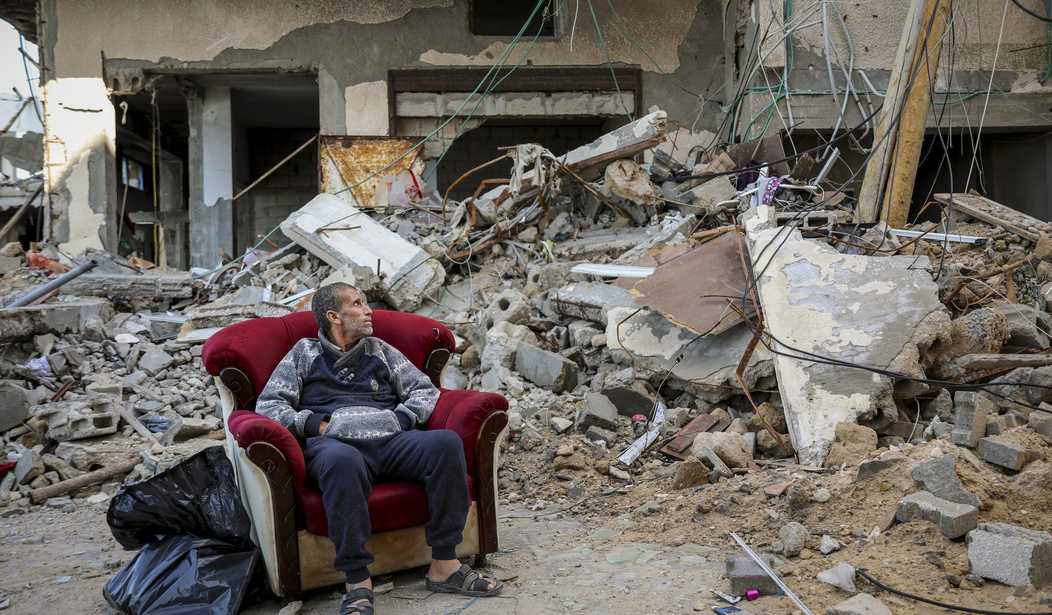The Biden administration strongly opposes Israel launching an assault on Rafah to demolish Hamas’s four remaining battalions. This is because such an attack would likely cause high civilian casualties and hinder humanitarian aid from entering Gaza via Egypt. Currently, 1.4 million Palestinians reside in Rafah due to the ongoing conflict, which has displaced 80 percent of Gaza’s 2.3 million inhabitants.
In response to concerns, Israel Defense Forces (IDF) Spokesman Rear Adm. Daniel Hagari has promised that, before any offensive, Israel will provide temporary housing, food, water, and other necessities to Rafah’s civilians in “humanitarian islands” across central Gaza’s Deir el-Balah Governorate. However, instead of targeting Rafah, Jerusalem should prioritize relocating the remaining 300,000 civilians in northern Gaza southward to deprive Hamas of terrorist safe havens.
Wadi Gaza separates the Gaza Strip’s now mostly depopulated northern third from its south. The IDF easily secured Wadi Gaza during the ground invasion’s early stages as its topography limits tunnel construction and urbanization. On January 6, the IDF announced it had dismantled Hamas’s battalions in northern Gaza and proceeded to withdraw its troops, demobilizing some while allocating others to planned offensives further south.
By February, Hamas had resurfaced in areas vacated by Israeli troops. Hamas and Palestinian Islamic Jihad reestablished a command center in Gaza City’s still-functioning al-Shifa Hospital. An IDF operation at al-Shifa starting on March 18 resulted in the deaths of over 140 Palestinian gunmen and the detention of hundreds, including leaders from each terrorist group. Israel had already recognized in February that Palestinian terrorists increasingly launched attacks from “humanitarian shelters and population concentrations” rather than tunnels.
These shelters, where most northern Gazan civilians live, serve as ideal terrorist safe havens due to overwhelming Palestinian support for attacks like the one on October 7. A poll conducted by the Palestinian Center for Policy and Survey Research between March 5 and March 10 asked, “In your view, was Hamas’s decision to launch its offensive against Israel on 7 October a correct or incorrect one?” Seventy percent of Gazans and 71 percent of West Bank Palestinians believed it was correct. Additionally, Hamas can use IDF raids on ostensibly humanitarian targets for propaganda purposes.
Seeking to multiply terrorist safe havens among a sympathetic population, Hamas subordinated all other issues during ceasefire negotiations in Doha to civilians resettling northern Gaza. This was not a principled position. When northern Gaza allegedly faces an imminent famine, Hamas’s al-Majd security website on March 11 threatened Palestinians against providing security for aid convoys in coordination with Israel. That came three days after Israel Hayom reported senior security officials proposed arming Gazans unaffiliated with Hamas to prevent looting of humanitarian aid. Palestinian gangs and civilians looting aid lorries compelled UNRWA and the World Food Program to suspend operations in northern Gaza last February.
U.S. National Security Advisor Jake Sullivan stated after Biden’s March 18 telephone call with Netanyahu, “Instead of a focus on stabilizing the areas of Gaza that Israel has cleared so that Hamas does not regenerate and retake territory that Israel has already cleared, the Israeli government is now talking about launching a major military operation in Rafah.” Even though Sullivan's point holds some truth, he offered no roadmap to achieve this stability.
When a supermajority of Palestinians supports exterminating Israeli Jews through attacks like those on October 7, it is impossible to establish postwar political institutions in Gaza that promote peaceful coexistence. Israel’s best postwar strategy involves shrinking the territory from which Palestinian terrorists can launch deadly raids and maintaining a minimal Israeli security presence outside southern Gazan cities to prevent Hamas from reconsolidating its rule.
Declaring northern Gaza a closed military zone before relocating its famished inhabitants southwards, rather than Rafah’s northwards, would permanently shrink Palestinian terrorists’ territorial base. This plan’s benefits include (1) avoiding an attritional counterinsurgency campaign in northern Gaza, (2) impeding terrorist movement between southern Gaza’s cities without policing population centers, and (3) averting Gaza’s political unification with the West Bank, a prerequisite for implementing the suicidal two-state solution.









Join the conversation as a VIP Member